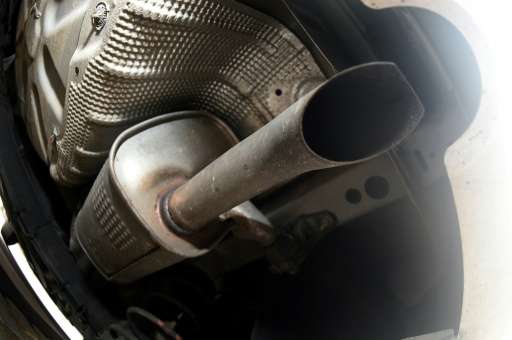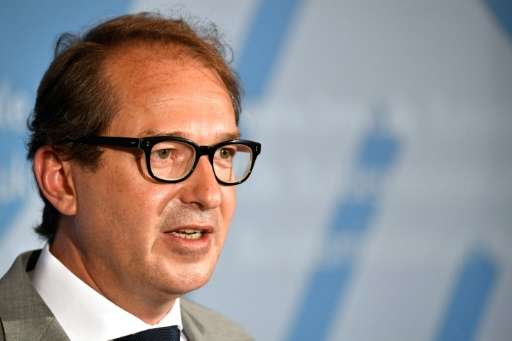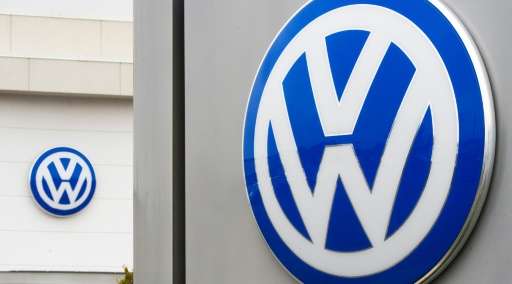Berlin pressures automakers as scandals pile up

German political leaders took the country's auto industry to task Thursday, demanding more action to reduce harmful diesel emissions even as new cartel allegations surfaced ahead of September elections.
"Yet more of the trust between the car industry and consumers, but also between carmakers and politicians has been destroyed," Environment Minister Barbara Hendricks said Thursday after a meeting with the chief executive of Volkswagen—a flagship of the "made in Germany" label.
Her unusually harsh words break with a German tradition of politicians standing by the auto industry, long enshrined at the heart of the economy with its 850,000 employees and importance to other major sectors like chemicals and machine tools.
"The car industry is doubtless one of the most important pillars of the German economy... that's why politicians have always had an open ear for the sector's interests," said Hendricks.
But "closeness between industry and politicians may have been too great in the past, perhaps making the auto industry feel too secure," she added.
Two years of scandal
Fears that the scandal in the auto sector could damage the nation's economy and the vaunted reputation for quality engineering that has made it an export powerhouse were sparked in 2015.
In September that year, Volkswagen admitted to manipulating 11 million diesel cars worldwide to minimise harmful nitrogen oxides (NOx) emissions under regulatory test conditions—while producing far more in real on-road driving.

The group has set aside tens of billions of euros to pay fines and compensation and refit affected cars to reduce NOx in their exhaust—as well as suffering massive damage to its reputation.
Investors and car owners have taken the north German manufacturer to court hoping to recover damages, while official investigations continue in some countries.
Meanwhile, Berlin—usually prompt to go to bat for its car industry in negotiations with the European Union or China—was uncharacteristically withdrawn during the affair.
The bad news did not stop with VW, as suspicion over emissions readings spread to Mercedes-Benz maker Daimler earlier this year.
And last week Der Spiegel reported that carmakers had been working secretly together on technology, suppliers, sales and emissions since the 1990s, harming consumers and suppliers and creating the preconditions for the diesel cheating—allegations the European Commission later confirmed it was looking into.
Among Merkel's government ministers, conservative Transport Minister Alexander Dobrindt has felt the most heat from the affair, with the Greens party accusing him of turning a blind eye to carmakers' sins and calling—unsuccessfully—for his resignation.
Political football
With two months to go until parliamentary elections, the diesel affair is both urgent and highly sensitive for political leaders—who need to strike a balance between toughness over the public health impact and the potential economic fallout.

Social Democratic Party (SPD) ministers like Hendricks cannot risk destroying jobs, while members of Chancellor Angela Merkel's centre-right Christian Democrats (CDU/CSU) like Dobrindt must keep business leaders on side.
Ministers set a "national diesel summit" between industry and government leaders for August 2 before the cartel allegations emerged.
The aim was to identify ways of reducing emissions, while heading off some cities' plans to ban diesels at times of peak pollution, which have begun putting consumers off the fuel.
Carmakers' gestures in advance of the gathering have included offers from Daimler to refit three million vehicles across Europe while BMW adjusts 350,000 and Volkswagen almost a million in Germany.
Nevertheless, Hendricks said Thursday that there may be no way around driving bans even allowing for such moves.
The overlapping crises for the car industry come as the sector faces fresh global challenges, with Britain and France planning to ban combustion engines from 2040, China pushing an electric vehicle quota and US electric car maker Tesla launching a new mass-market model.
"Competition for tomorrow's clean mobility is now open. Worldwide. That's not good news for Germany's car industry" as it wrestles with scandal, wrote columnist Petra Pinzler in weekly Die Zeit.
© 2017 AFP





















